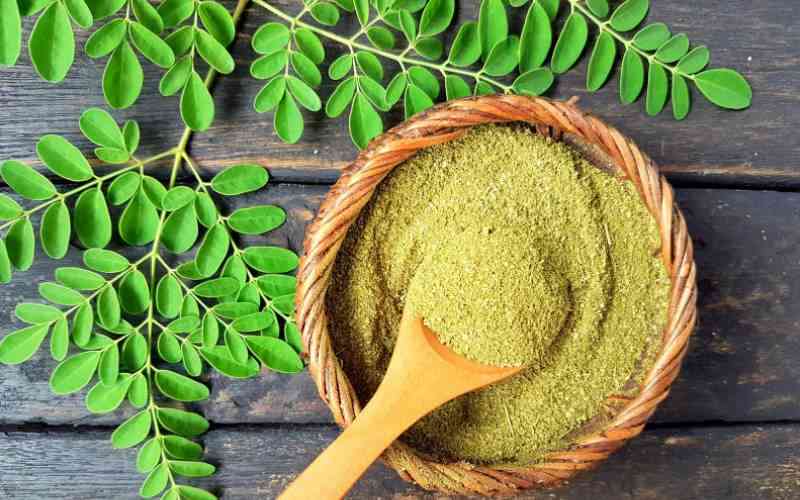×
The Standard e-Paper
Smart Minds Choose Us

Moringa powder or super food in wooden spoon with moringa fresh leaves [iStockphoto]
The taste is unusual and the sector is becoming a big business. However, it should be noted that financing a superfood enterprise like moringa, requires creativity.